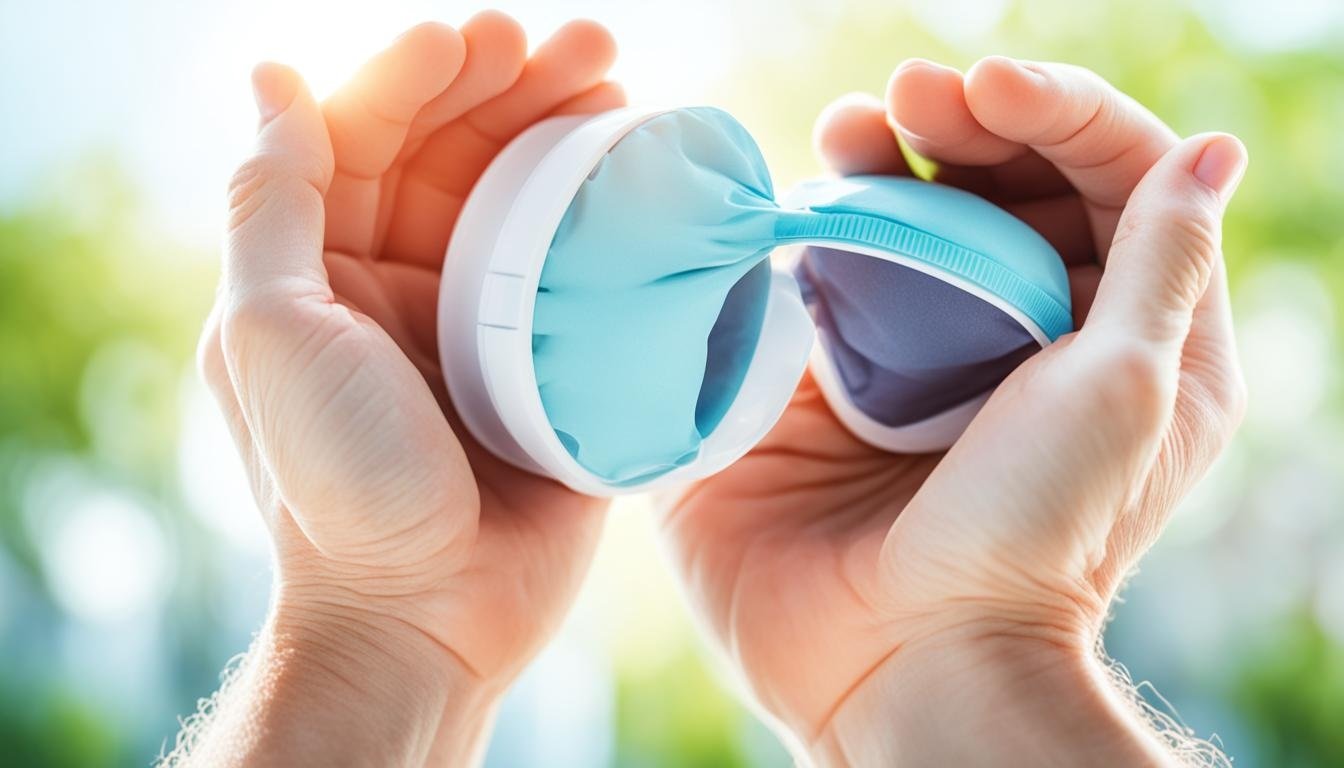Sunlight is both good and bad for our health. Too much sun can harm our skin and increase cancer risk. But, getting the right amount of sunlight is key for our health. This article will look at the good sides of sunlight and how to get it safely.
Key Takeaways
- Sunlight is key for making vitamin D, which helps our bones, immune system, and prevents chronic diseases.
- Getting some sun can make us feel happier, keep our body clocks in check, and help with seasonal depression.
- Following safe sun exposure tips lets us enjoy sunlight’s benefits without the dangers of UV radiation.
- Sunlight is good for our skin by making collagen and reducing inflammation.
- Getting the right amount of sun supports our physical and mental health.
The Benefits of Sunlight Exposure
Sunlight is great for our health and well-being. It helps our bodies make vitamin D, which is key for strong bones and a healthy immune system.
Vitamin D Production
When our skin gets UVB rays from the sun, it makes vitamin D. This vitamin is important for absorbing calcium and phosphorus. These minerals are crucial for healthy bones. Having enough vitamin D lowers the chance of osteoporosis and fractures, especially in older people.
Bone Health Enhancement
Sunlight also helps bone health directly. The sun’s rays make osteoblasts, cells that build and repair bones. This makes bones stronger and lowers the risk of fractures and other bone problems.
Vitamin D also helps with skin health. It prevents acne and reduces aging signs. Regular sun exposure boosts your overall health and well-being.
“Sunlight is not only a source of vitamin D, but it also has a direct impact on bone health, skin health, and overall well-being.”
| Benefit | Description |
|---|---|
| Vitamin D Production | Sunlight exposure triggers the body’s natural synthesis of vitamin D, which is crucial for calcium and phosphorus absorption, maintaining strong bones, and supporting immune function. |
| Bone Health Enhancement | The ultraviolet rays in sunlight can stimulate the production of osteoblasts, the cells responsible for building and repairing bone tissue, helping to strengthen the bones and reduce the risk of fractures. |
| Skin Benefits | Vitamin D has been shown to play a role in skin health, helping to prevent acne and reduce the visible signs of aging. |
when sunlight is good for health
Sunlight is great for both your body and mind. It helps control your circadian rhythm, which means better sleep and mood. It also helps with seasonal affective disorder (SAD), a type of winter depression.
But, it’s important to be careful with the sun. Following guidelines for safe sun exposure is key. This helps avoid sunburns, skin damage, and skin cancer risks. Too much sun can be bad.
Knowing how sunlight helps your mental health and the risks of UV radiation lets you make smart choices. Adding safe sunlight to your day can boost your overall health. It’s a simple way to look after your body and mind.
FAQ
How does sunlight help with vitamin D production?
Sunlight, especially UVB rays, makes the body produce vitamin D. This vitamin is key for strong bones, fighting osteoporosis, and boosting the immune system.
What are the benefits of vitamin D for bone health?
Vitamin D helps the body use calcium and phosphorus. These minerals are vital for strong bones. Having enough vitamin D lowers the chance of osteoporosis and fractures, especially in older people.
How can sunlight exposure boost mental health?
Sunlight helps set the body’s internal clock, which can make sleep better and mood brighter. It also helps with seasonal affective disorder (SAD), a winter depression.
What are the guidelines for safe sun exposure?
It’s good to get some sun, but be careful to avoid UV radiation’s dangers like sunburns and skin cancer. Use sunscreen, stay in the shade, and limit sun time during peak hours.
What are the potential risks of excessive sun exposure?
Too much sun can harm your skin, cause early aging, and increase skin cancer risk. Always balance sun benefits with safety, following guidelines for safe sun time.



